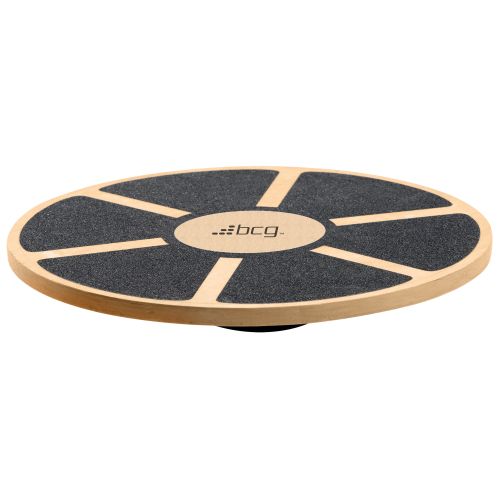Sunday morning and I go into AFib spend the day and into this morning feeling like I'm in Afib! I'm curious to know how accurate my heart strap and Garmin watch combination matches my handheld AF gizmo when in AFib so I'm thinking here is a perfect opportunity, so I set a timer to 15 minutes and get to wobbling while wearing the Garmin combo (the wobble board for info I use to keep mobilized a recalcitrant ankle injury) Initially, my heart rate is as you would expect, all over the shop with highs of 160+, anyways I'm thinking ok my Garmin setup seems to be telling me what I need to know ie crazy high heart rate for pretty much zero physical activity and if I was wearing this while going for a walk or run for example here would be the warning indication that things were not as they should be. So times up and I head to the handheld gizmo and that's me back in sinus rhythm. Don't try this at home folks but how weird is that.
A strange thing happened on the way t... - Atrial Fibrillati...
A strange thing happened on the way to the wobble board.

Whatever works for you. Don't knock it.
Many people find that exercise of any type can convert you back into SNR. Driving over a pothole put me into SNR after 24 hours of AF last year - mind although it helped me - the car was very poorly and ended up in car hospital for a week!
The roads here in France are in general in much better repair than those on the Isle. I think I will stick to the Wobble board 
Give this a try to see if you can reduce your afib episodes, or reduce their severity:
-------------------------------------
After 9 years of trying different foods and logging EVERYTHING I ate, I found sugar (and to a lesser degree, salt – i.e. dehydration) was triggering my Afib. Doctors don't want to hear this - there is no money in telling patients to eat less sugar. Each person has a different sugar threshold - and it changes as you get older, so you need to count every gram of sugar you eat every day (including natural sugars in fruits, etc.). My tolerance level was 190 grams of sugar per day 8 years ago, 85 grams a year and a half ago, and 60 grams today, so AFIB episodes are more frequent and last longer (this is why all doctors agree that afib gets worse as you get older). If you keep your intake of sugar below your threshold level your AFIB will not happen again (easier said than done of course). It's not the food - it's the sugar (or salt - see below) IN the food that's causing your problems. Try it and you will see - should only take you 1 or 2 months of trial-and-error to find your threshold level. And for the record - ALL sugars are treated the same (honey, refined, agave, natural sugars in fruits, etc.). I successfully triggered AFIB by eating a bunch of plums and peaches one day just to test it out. In addition, I have noticed that moderate (afternoon) exercise (7-mile bike ride or 5-mile hike in the park) often puts my Afib heart back in to normal rhythm a couple hours later. Don’t know why – perhaps you burn off the excess sugars in your blood/muscles or sweat out excess salt?? I also found that strenuous exercise does no good – perhaps you make yourself dehydrated??
I'm pretty sure that Afib is caused by a gland(s) - like the Pancreas or Thyroid - or an organ that, in our old age, is not working well anymore and excess sugar or dehydration is causing them to send mixed signals to the heart - for example telling the heart to beat fast and slow at the same time - which causes it to skip beats, etc. I can't prove that (and neither can my doctors), but I have a very strong suspicion that that is the root cause of our Afib problems. I am working on this with a Nutritionist and hope to get some definitive proof in a few months.
Also, in addition to sugar, if you are dehydrated - this will trigger AFIB as well. It seems (but I have no proof of this) that a little uptick of salt in your blood is being treated the same as an uptick of sugar - both cause AFIB episodes. (I’m not a doctor – it may be the sugar in your muscles/organs and not in your blood, don’t know). In any case you have to keep hydrated, and not eat too much salt. The root problem is that our bodies are not processing sugar/salt properly and no doctor knows why, but the AFIB seems to be a symptom of this and not the primary problem, but medicine is not advanced enough to know the core reason that causes AFIB at this time. You can have a healthy heart and still have Afib – something inside us is triggering it when we eat too much sugar or get (even a little) dehydrated. Find out the core reason for this and you will be a millionaire and make the cover of Time Magazine! Good luck! - Rick Hyer
PS – there is a study backing up this data you can view at:
https//cardiab.biomedcentral.com/a...
Thanks for the cut and paste I have read your post previously.